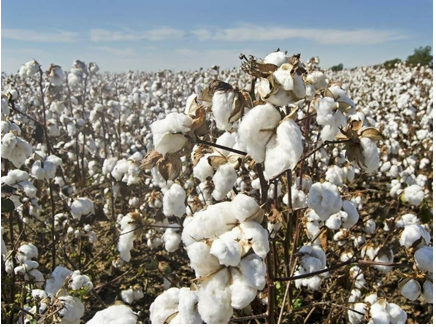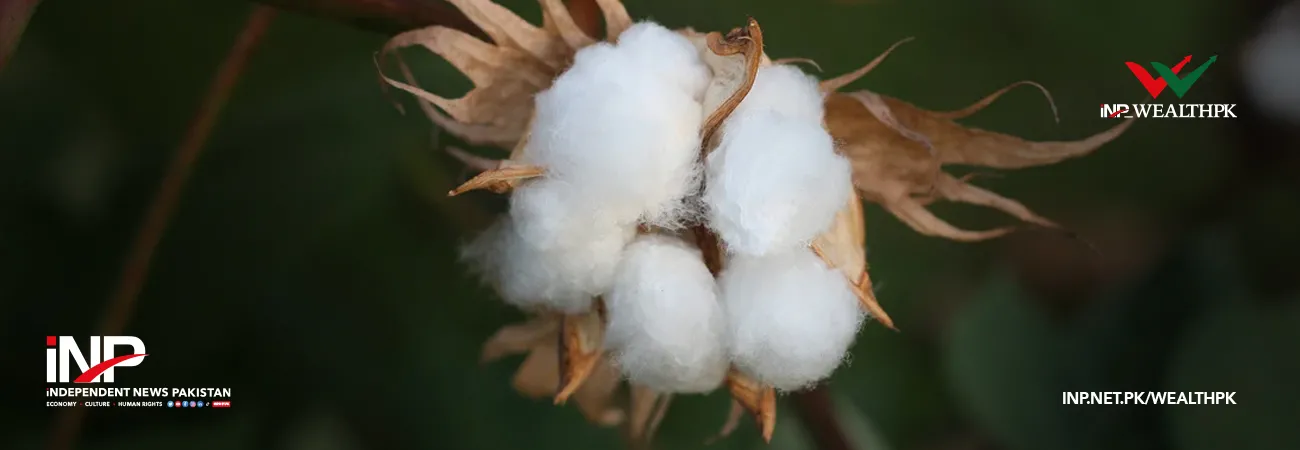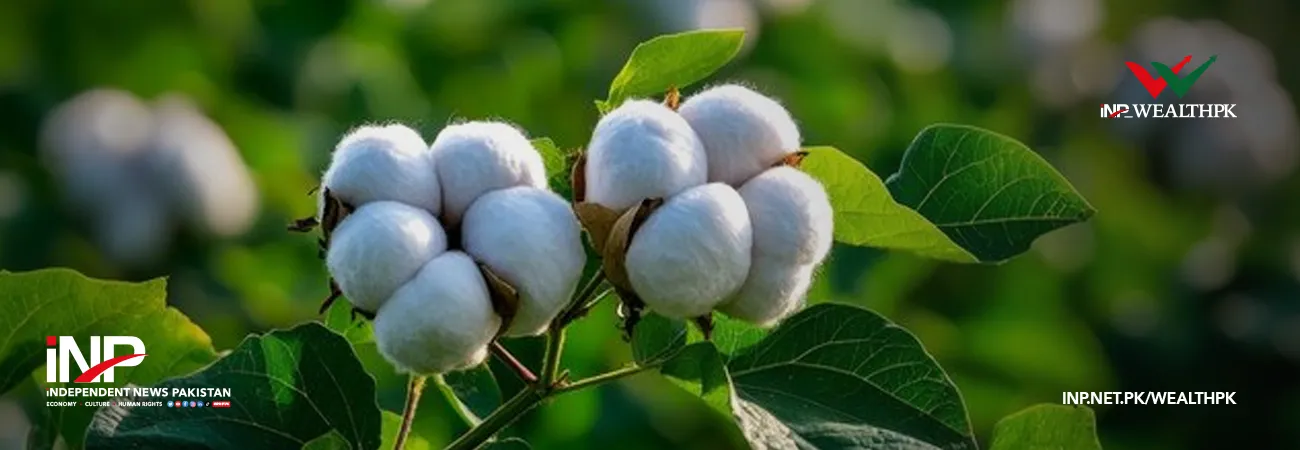INP-WealthPk
Arooj Zulfiqar
Pakistan's cotton yields are plummeting due to the widespread use of unapproved seeds, worsening climate conditions, and escalating pest attacks, threatening the livelihood of millions of farmers and impacting the textile industry, Sajid Mahmood, Head of Technology Transfer Department at the Central Cotton Research Institute, Multan, told WealthPK.

Cotton production has experienced a significant drop, with the overall arrivals decreasing by 36.84% compared to the previous year as reported by the Pakistan Cotton Ginners Association (PCGA). As of November 1, 2024, the arrivals totaled 4,291,105 bales – a considerable decline from the last year's 6,794,006 bales. Punjab recorded a reduction of 38.53% in production, producing 1,842,257 bales this year compared with the last year's 2,996,921 bales. Sindh saw a reduction of 35.51%, producing 2,448,848 bales, down from 3,797,085 bales in 2023. Balochistan’s production stands at 131,800 bales.
Sajid said, “Among the most significant challenges is widespread use of unapproved seeds that have been flooding the market. These seeds, though cheaper, are of low quality and resilience.” “The farmers who opt for these cheaper alternatives face reduced germination rates and lower-quality crops, leading to lower yields and greater susceptibility to the environmental stresses,” he said. “Certified seeds, on the other hand, are specifically designed to resist pests and diseases and are tailored to the local growing conditions. They guarantee better yields and have a far better chance of surviving the adverse weather conditions,” Sajid said.
He added, “Climate change has also worsened the situation. Unpredictable weather patterns, including the extended droughts and erratic rainfall, have taken a toll on cotton cultivation. The unpredictability of rainfall makes it difficult for the farmers to plan irrigation schedules, leading to either water shortages or waterlogging. Furthermore, the rising temperatures and extreme weather events like heatwaves have stressed crops, reducing yields further.” Another major hurdle has been the resurgence of pest attacks. Cotton is particularly vulnerable to pests like cotton bollworm, which has been spreading rapidly across the cotton-growing areas.
Despite efforts to control these pests, the reliance on outdated pesticides and lack of pest-resistant seed varieties have made it difficult to combat these infestations effectively. This situation calls for urgent government intervention to revive Pakistan’s cotton industry. First, it is essential to create awareness among the farmers about the dangers of using unapproved seeds. Strengthening regulations against the sale of uncertified seeds and ensuring quality control is crucial. Simultaneously, there needs to be a focus on enhancing agricultural research funding to develop seed varieties that are more resilient to pests, diseases, and climate extremes.
Credit: INP-WealthPk













